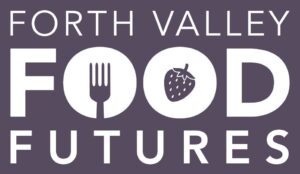 For Scotland to achieve net zero carbon emissions by 2045, we must all start to take responsibility and act now. By making small changes to our everyday living we will all help make a difference over time.
For Scotland to achieve net zero carbon emissions by 2045, we must all start to take responsibility and act now. By making small changes to our everyday living we will all help make a difference over time.
Start by taking practical steps to eat more sustainably, reduce food waste, eat more seasonal and locally grown produce – these steps will all help reduce carbon emissions and save our planet.
Below are some ideas and tips to help get you started.
Eat More Sustainably
Making more sustainable food choices is not only good for your health but it’s good for the planet too.
Eat less red meat
- Have some meat free days – Visit Meat Free Mondays to see how to get started.
- Reduce the portions of meat you serve especially beef and lamb.
- In meat dishes such as chilli or shepherds pie – replacing half of the meat in the recipe with beans, lentils or soya mince.
Eat more plant based foods
- Add beans, lentils or nuts to dishes and gradually reduce the amount of meat in dishes.
- Try a vegetable or sweet potato curry or beany, lentil chilli for a change.
- Fill your plate with fresh, seasonal vegetables or salads.
- Pot for plenty vegetables as a pizza topping instead of the Meat Feast.
Consume less high fat dairy products
- Choose lower fat and sugar dairy options – such as semi skimmed or skimmed milk, sugar free yogurts.
- If you choose to use a plant–based alternative milk such as soya, oat or almond milk – make sure it is fortified with added calcium and iodine.
- Use tomato based sauces on pasta instead of creamy ones.
Eat higher fibre wholegrains
- Wholegrains are nutritious and full of fibre that can help us feel fuller for longer.
- Choose high fibre, wholemeal, seeded or granary rolls or bread.
- Start your day with a high fibre, wholegrain breakfast cereal such as porridge oats or bran flakes, topped with some chopped fruit.
Reduce Food Waste
We all need to start thinking about how we can reduce the amount of food we throw away. By planning meals, shopping smarter and storing foods appropriately this will not only help reduce food waste, but will save you money, reduce your carbon footprint and help you do your bit to tackle climate change.
By just making a few small changes every day could help reduce the amount of food you throw away.
- Check what food you have in your cupboards, fridge and freezer before you go shopping and write a list of the foods you need and stick to it.
- Write a meal plan – that details what you’re going to eat for breakfast, lunch and dinner for a few days or a week – To help get you started download our free Shopping List / Meal Planner Template.
- When you are shopping – check the dates – make sure you opt for the furthest away dates. Avoid buying foods with fast approaching use-by dates unless you know you’re going to eat it or freeze it.
- It’s a good idea to freeze sliced bread, rolls and chopped vegetables and take out what you need, when you need it.
- Plan out the portions you need and if you cook too much use the leftovers as quick lunch or snacks the next day, or freeze to eat at a later date.
- Shopping online is a great way to help you stick to your shopping list and meal plan – you may be less tempted to buy on impulse.
- The British Dietetic Association have produced some Smart Supermarket Shopping tips.
It’s also important that we dispose or recycle any food that we are throwing away – Read more about Recycling Food Waste or How to compost at home.
Further Information and Resources – Reduce Food Waste
- Batch cooking and freezing food – Great tips from the British Dietetic Association.
- Love Food, Hate Waste – For top tips and inspiration on how to cut food waste at home, how to make the most of the food you have, leftover recipe ideas, how to store food correctly, meal planners and a portion planner.
- Net Zero Nation Scotland – Has some handy tips on how to reduce food waste and save money.
- How can we solve the planets food waste problem? – Video (BBC News)
- Food waste whole school teaching resources (Zero Waste Scotland)
Eat Foods that are in Season
Choose to buy and eat fresh produce that’s in season it can taste better, can be more affordable and it’s better for the environment.
- Choose local and seasonal produce. To find out what’s in season – Download the Seasonal Calendar
- Remember tinned and frozen fruit and vegetables – also count towards your 5 a day.
- Avoid chopped or pre-prepared and packaged fresh fruit vegetables and salads.
Further Information and Resources – Eat Seasonal Produce
- BBC Bitesize – For more information on Seasonal Food and Food Miles and the Environment. Choosing foods that have travelled fewer food miles helps to reduce pollution and protects our planet.
- Eat Seasonably – Eat Seasonably have produced an online calendar that helps you discover what’s ripe, ready and at its best throughout the year.
- What’s in Season? (Nutrition Scotland)
Buy Local Produce
Choose to buy and eat fresh produce that’s grown locally it’s better for the local economy and it can taste better and can last longer.
- Avoid buying fruit and vegetables that have been flown in from different countries.
Grow Your Own
Buying local produce is great for the planet but it’s even better still to grow your own produce.
- Visit our Grow and Cook page for simple ‘Grow your Own’ Guides and video – to help get you started growing your own produce at home.
- Grow your own – Inspiring everyone to grow (Royal Horticultural Society)
Forth Valley Food Futures
Forth Valley Food Futures is the home of the region’s cross-sector Food Partnerships working together to transform our food systems to positively benefit wellbeing, health, economic development and to protect nature and the environment.
- Forth Valley Food Futures
- Forth Valley – Sustainable Food Directory
- Forth Valley – Sustainable Food Map
3 Forth Valley Food Partnerships
These three partnerships are all members or are in the process of becoming members of the Sustainable Food Places Network.
Further Information, Resources and Links
Visit our Campaigns web page to see some of the organisations that support sustainable eating by delivering national campaigns eg Sustainable Cities, British Dietetic Association’s Sustainable September, Food Waste Action Week, Peas Please, Meat Free Monday, Veg Power etc.
- British Dietetic Association have produced a number of resources to support sustainable eating:
- Environmentally Sustainable Diets
- Tips for a Sustainable Diet
- Sustainable Hacks – How to make healthier, more sustainable swaps in everyday food choices.
- British Nutrition Foundation – Have produced a webinar – ‘How to eat well for you and the planet’.
- EUFIC (European Food Information Council) – Inspiring and empowering healthier and more sustainable lifestyle choices. Explore Seasonal Fruit and Vegetables in Europe Map, find out what’s in food and much more.
- Forth Environment Link – Is a Scottish environmental charity, based in Forth Valley, leading the way on connecting people and place on actions which make a positive response to the Climate Emergency.
- #FoodSavvy – A hub for affordable, healthy and climate friendly food. Packed full of practical tips for saving money, a recipe hub to give ideas what you could make to use up your leftovers, how to cut food waste and more…
- How to eat sustainably on a budget (BBC)
- Hubbub – How to make actions that are good for the environment, second nature.
- Love Food Hate Waste – aims to raise awareness of the need to reduce food waste and helps us to take action.
- Net Zero Nation Scotland – Eating Greener
- Sustainable Food Places – Working across all aspects of the food system to solve some of today’s most pressing social, environmental and economic issues. They have an Award scheme which is designed to recognise and celebrate the success of those places taking a joined up, holistic approach to food and that are achieving significant positive change on a range of key food issues.
- Sustainable Food ABC – A project at Glasgow Caledonian University (GCU), led by a group of Dietetic students, aimed to raise awareness of sustainable diets and food waste and how small steps each day by a large number of people can make a huge impact. They have produced a Sustainable Food ABC – Cookbook and they can be found on Facebook.
- World Wildlife Fund (WWF) – 10 Tips to help you eat more sustainably
- WRAP – Developing a sustainable food system
Did You Know?
Each year, UK households throw away 4.5 million tonnes of food that could be eaten. If everyone stopped throwing away food for just one day in the UK, it’d do the same for greenhouse gas emissions as taking 14,000 cars off the road for a full year.
Households caused 70% of the UK’s food waste, throwing away 6.6 million tonnes of food, of which 4.5 million tonnes was edible. That amount of edible food was enough to create an additional 10.5 billion meals.
In Scotland we send over a million tonnes of biodegradable waste to landfill each year. Two thirds of food waste in Scotland comes from households. It’s clear that we can do things differently. For example, if we stopped all avoidable household food waste, the environmental impact would be the equivalent of taking almost one in five cars off Scotland’s roads.
Around a third of the food we produce is wasted worldwide each year – that’s 1.3 billion tonnes of food that’s never eaten and thrown away.
Food waste alone generates about 8% of the world’s greenhouse gas emissions.


